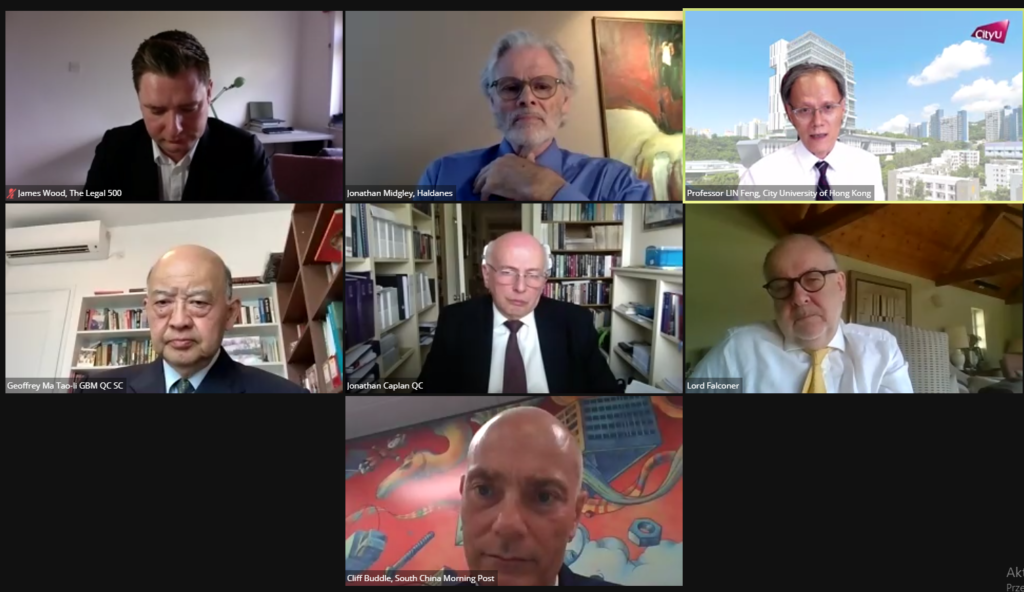The Legal 500`s online meeting “The future of law and business in Hong Kong” which for Polish entrepreneurs is the jurisdiction of tax optimization based on transfer prices within the meaning of Council Directive (EU) 2017/1852
On May 5, 2021 at 4 pm Hong Kong time there took place a discussion panel devoted to the future of law and business in Hong Kong (link to the Videoconference Panel). The virtual meeting was chaired by legal experts, including:

- MR GEOFFREY MA TAO-LI GBM QC SC – Former Chief Justice of Hong Kong.
- LORD FALCONER – Baron Falconer of Thoroton, Former Lord Chancellor and Secretary of State for Constitutional Affairs from 2003-2007.
- MR JONATHAN CAPLAN QC – Appointed as Queen’s Counsel since 1991.
- PROFESSOR LIN FENG – Professor of Law and Associate Dean of the School of Law of City University of Hong Kong.
- MR JONATHAN MIDGLEY – Senior Partner of Haldanes Solicitors and Solicitor Advocate since 2013.
- MODERATOR: MR CLIFF BUDDLE – Special Projects Editor, South China Morning Post.
The lawyers of KIEŁTYKA GŁADKOWSKI law firm received an invitation to participate in the event due to their long-standing presence in the Legal 500 EMEA rankings. The Polish law firm KIEŁTYKA GŁADKOWSKI owes its participation in the ranking to the confirmation by international clients of the law firm’s competitive experience in legal services in international business, including services rendered for entities operating in the Fintech and Life science industries.
The discussion panel focused mainly on the independence of the judiciary in Hong Kong, or the attractiveness of Hong Kong as the seat of an arbitration court and its position on the international market. This topic is very important for the continuous development of the cross border specialization of our law firm. Virtual meetings with legal experts create the possibility of networking for the purposes of possible cooperation for the benefit of the law firm’s clients.
From the perspective of clients of our law firm operating in business based on the structures of capital groups, the jurisdiction of Hong Kong is a place for business tax optimization in the Polish jurisdiction, or more precisely for the part of revenue of capital group that was created in Poland.
These are the so-called transfer prices used in transactions between related entities, in particular within one capital group. A significant part of transactions on the cross-border market are transactions between related entities, such as the flow of commercial goods between enterprises from one capital group or the provision of services to legal persons by their owners and management boards. The transfer prices used in these transactions are intended to influence the final amount of profits or losses in individual parts of the group, and ultimately also the group’s competitiveness against other companies.
Tax optimization based on transfer prices between entities from a cross-border capital group, including those based in such attractive jurisdictions as Hong Kong (from the perspective of Polish fiscalism) remains, however, the subject of permanent official interpretations of the Polish Ministry of Finance which verifies the legality of such solutions and arrangements.
In order to reduce the risk of shifting revenues through transfer pricing, countries with high tax obligations such as Poland introduced into their systems regulations requiring enterprises to set transfer prices at levels consistent with market prices.
In Poland, the main provisions regulating the mechanisms used for tax optimization based on transfer prices are included in:
1) the Act of February 15, 1992 on corporate income tax (i.e. Journal of Laws of 2020, item 1406, as amended), in particular art. 11a and following (transfer pricing);
2) the Act of October 16, 2019 on the settlement of double taxation disputes and the conclusion of advance pricing agreements (Journal of Laws, item 2200, which implemented the Council Directive (EU) 2017/1852 of October 10, 2017 on double taxation dispute resolution mechanisms in the European Union (Journal of Laws UE L 265 of 14.10.2017, p. 1).
An example of sealing the cross border tax system are the current tax clarifications provided by the Polish Ministry of Finance on transfer pricing of March 31, 2021 regarding the method of official verification of the transfer price based on the criterion of a comparable uncontrolled price.
